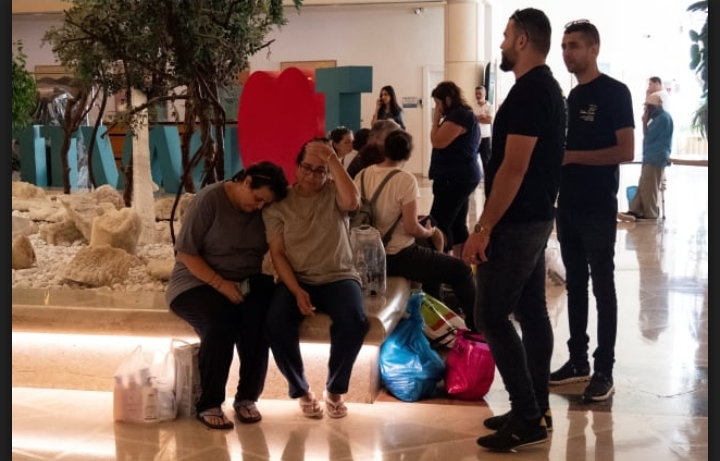Expelled and stranded, who will help Israel's evacuees? - editorial

Since the massacre on October 7, residents of Gaza border communities and those living along Israel’s northern border have been evacuated and moved to hotels and homes across Israel.
So far, over 125,000 men, women, and children have left their homes, the workplaces they have come to know – and the streets they have walked along every day – to a new, unknown place.
Jobless, homeless and helpless, the evacuees of the North and South are another sector that have been turned into victims of the Israel-Hamas war.
The government announced that hundreds of millions of shekels would be allocated toward an emergency fund for the sake of evacuation assistance and payment for hotels for these exiled residents. However, hotels have experienced massive delays in government payments.
The funding of accommodations has been messy and confusing.
How is the government helping the evacuated?
Originally, it was announced that this money comes from the Finance Ministry, which transfers the funds to the Interior Ministry, which in turn is supposed to be making the necessary transfers. Then, Maj.-Gen. Yoram Laredo, head of the National Emergency Authority (RAHAL), said that the Tourism Ministry is also involved with managing the issue of accommodations.
These contracts, according to him, are transferred by the Tourism Ministry for approval from the Interior and Defense ministries, as well as local authorities.
Laredo said back in October, “Starting on October 7, we began implementing evacuation plans, the goal of which is to remove citizens from areas subject to military or security coercion. The first evacuees were the communities around the Gaza Strip (0-4 km. [from the border]), in an operational process by the Search and Rescue Division.


They were evacuated from there and placed in hotels. This evacuation was carried out under immediate military coercion.
“A week later, we began further evacuation operations, under security coercion, in communities located 4-7 km. from the border, and the city of Sderot followed,” he said.
“The second stage of evacuations was also under immediate military coercion, and it included settlements within 0-2 km. in the North, the city of Kiryat Shmona, and 14 other settlements in the North. All these communities are included in the government’s plans and, in total, about 125,000 residents have been evacuated.”
In the meantime, these evacuees are left without jobs, schools, or any other form of structure or routine, having been uprooted from all those things. Instead, they are faced with uncertainty, doubt and fear: uncertainty over the future, doubt that they will ever experience some semblance of normalcy, and fear for their lives.
“It’s nice here in Tel Aviv, but our hearts are back home in Kiryat Shmona,” Nurit Kabelo, a resident of the northern near-border city, told Maariv. “It doesn’t seem to us that we will be able to return home soon. We entered a war routine in Tel Aviv, and we still don’t see the light at the end of the tunnel.”
This dire situation has created countless volunteer projects: truly admirable ones. However, it is not the responsibility of the Israeli public to come together and fight for its fellow citizens, just as it is not the responsibility of the Israeli public to feed IDF soldiers and reservists, support families left at home while one of the parental figures heads off to war, or assist the farms down South. All of these actions should be lauded, but it is really the government’s responsibility to provide such crucial support.
This support includes some semblance of structure to enter a temporary routine, but it also includes financial solutions. While the government has given evacuees full exemptions from municipal tax, it has failed to consider those who rent in the North and South – and people who were evacuated to hotels are not eligible for financial compensation.
This also includes some sort of health support. Due to the close quarters where evacuees are living in hotels and resorts, there have already been several reports of illness outbreaks, including coronavirus. It’s now over two months into this war and we have yet to see a clear, comprehensive plan for the evacuated communities that is sustainable.
To the Israeli government, we say: “Wake up – your people need you.”
Culled from The Jerusalem Post

